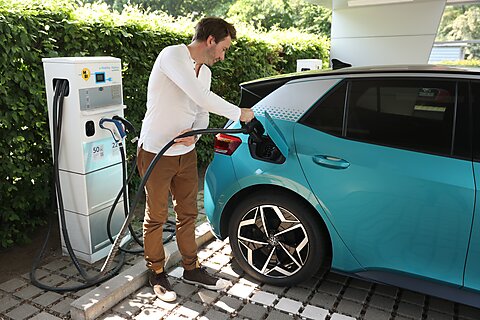David Kemp
A Washington Post article this week observes that oil industry executives celebrated huge profits in the wake of an international agreement to transition away from fossil fuels to reach net‐zero greenhouse gas emissions by 2050. At the United Nations Climate Change Conference (COP28) held in Dubai at the end of last year, nations agreed to “transition away from fossil fuels.” The Post notes that, “three months later, it appears that some of the world’s biggest oil and gas companies did not get the memo. At an energy conference [in Houston] their leaders struck a much different tone, predicting that fossil fuels will continue to power the global economy well into the future.”
The article goes on to quote oil industry leaders who praised the Dubai agreement but still predict that oil and gas will play an important role in any energy transition and notes that US oil production is hitting record highs while global oil demand continues to increase.
Meanwhile, on the same day the Washington Post also reported that the Environmental Protection Agency (EPA) finalized a rule setting limits on greenhouse gas emissions from passenger vehicles. The rules are the most stringent tailpipe emissions standards ever set, but are less stringent than initially proposed last year. The EPA estimated that the original rule would require 67 percent of new vehicles to be electric vehicles (EVs) by 2032, compared to only 5.8 percent in 2022.
The United Auto Workers (UAW) opposed the rule. A shift to EVs was one of the UAW’s complaints during their strike last year. As the Post reported, “The union has been wary of EVs because they generally require fewer workers to assemble than gasoline‐powered vehicles, and because many EV plants are being built in Southern states less friendly to unions.” The UAW actually withheld their endorsement of President Biden over their worries about the EPA’s proposed rule. So the EPA decided to slow down the reduction in emissions and therefore the adoption of EVs.
Delaying the requirements is a marginally positive result. The goals of the tailpipe rule are overly ambitious and the cost‐benefit analysis likely overstates the benefits.
But the juxtaposition of the two articles still highlights the hypocrisy of environmental advocates and politicians. Both the goals of transitioning away from fossil fuels by 2050 and increasing EV usage are potential examples of what Peter Van Doren notes is a consistent feature of environmental legislation and regulations: “policy beyond capability.” As he described in a blog post about the original version of the tailpipe emissions regulations,
The history of environmental regulation consists of ambitious unrealistic goals followed by missed deadlines and lack of enforcement. The most ambitious unrealistic goal was the California legislative proposal in 1970 to ban the internal combustion engine by 1975. The California State Senate approved the bill while floor consideration in the Assembly failed by one vote. The 1970 national Clean Air Act required ambient air quality standards be achieved by 1975. The deadlines were extended many times. By 2005, of the 338 deadlines set by the Clean Air Act Amendments of 1990 only 37 had been met by the deadline specified in the statute.
These two cases also show how unrealistic policies are not applied consistently. Concessions to labor unions over electric vehicles are considered an acceptable political sacrifice, even though President Biden characterized the “climate crisis” as an “existential threat” in his recent State of the Union address, whereas the oil industry’s assertion that fossil fuels will remain important in the future and continuing high profits are seen as undermining the COP28 goal of achieving net‐zero by phasing out fossil fuels.
Whether climate change is a catastrophe or, more realistically, a potential problem that requires a rational and sober response, policies to reduce emissions should be realistic and applied uniformly. When concessions are given to one party’s constituents, other groups, such as oil companies, workers in oil and gas fields, and consumers worried about high prices on their favorite cars, will wonder where their concessions are.
























